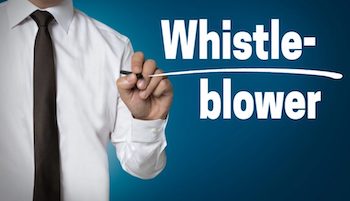More than $4.7 billion in settlements and judgments from whistleblower cases involving fraud against the government were recovered in 2016. Of the $4.7 billion recovered, $2.5 billion came from the health care industry, including drug companies, medical device companies, hospitals, nursing homes, laboratories, and physicians. In many of these cases, the Department was instrumental in recovering additional millions of dollars for state Medicaid programs.
The next largest recoveries came from the financial industry in the wake of the housing and mortgage fraud crisis. Settlements and judgments in cases alleging false claims in connection with federally insured residential mortgages totaled nearly $1.7 billion in fiscal year 2016 – the second highest annual recovery in this area.
Most false claims actions are filed under those whistleblower, or qui tam, provisions. If the government prevails in the action, the whistleblower, also known as the relator, receives up to 30 percent of the recovery. Whistleblowers filed 702 qui tam suits in fiscal year 2016, and the Department recovered $2.9 billion in these and earlier filed suits this past year. The government awarded the whistleblowers $519 million during the same period.
$19.3 billion in health care fraud claims from January 2009 to the end of fiscal year 2016. The largest recoveries this past year – $1.2 billion – came from the drug and medical device industry. Drug makers Pfizer and Wyeth paid $784.6 million to resolve federal and state claims that Wyeth knowingly reported false and fraudulent prices on two drugs used to treat acid reflux, Protonix Oral and Protonix IV. The government alleged that Wyeth (before it was acquired by Pfizer) failed to report deep discounts available to hospitals, as required by the government to ensure that the Medicaid program enjoyed the same pricing benefits available to the company’s commercial customers. Wyeth paid $413.2 million to the federal government and $371.4 million to state Medicaid programs.
In another settlement against a drug company, Novartis, which paid $390 million based on claims that the company gave kickbacks to specialty pharmacies in return for recommending Exjade, an iron chelation drug, and Myfortic, an anti-rejection drug for kidney transplant recipients. The settlement includes $306.9 million for the federal government and $83.1 million for state Medicaid programs.
Hospitals and outpatient clinics accounted for $360 million in recoveries. Tenet Healthcare, a major hospital chain in the United States, paid $244.2 million to resolve civil allegations that four of its hospitals engaged in a scheme to defraud the United States by paying kickbacks in return for patient referrals. Tenet paid an additional $123.7 million to state Medicaid programs, and two of its subsidiaries pleaded guilty to related charges and forfeited $145 million, bringing the total resolution to $513 million.
Milleneum Health paid $260 million to settle allegations that it billed Medicare, Medicaid, and other federal health care programs for excessive and unnecessary urine drug and genetic testing and also that it gave free items to induce physicians to refer expensive and profitable lab tests to Millennium, in violation of the Anti-Kickback Statute and Stark Law. The settlement included $214.8 million in alleged false claims against federal programs, $26 million in alleged false claims against state Medicaid programs, and $19.2 million in related administrative claims.
The nation’s largest contract therapy provider paid $125 million to resolve claims that it had induced skilled nursing homes to submit false claims to Medicare for rehabilitation services that were not reasonable, necessary, and skilled, or that weren’t provided at all. The settlement was with RehabCare Group and Kindred Cases involving nursing homes and skilled nursing facilities accounted for more than $160 million in settlements and judgments this past fiscal year.
Over $7 billion in housing and mortgage claims from January 2009 to the end of fiscal year 2016, including settlements and judgments totaling $1.6 billion this past fiscal year – the second highest annual recovery in the history of the federally insured mortgage program. Notable this year were settlements with Wells Fargo for $1.2 billion and Freedom Mortgage for $113 million.
Wells Fargo and Freedom Mortgage both admitted that they had originated and endorsed residential mortgages as eligible for federal insurance by the Federal Housing Administration (FHA) that did not meet requirements intended to reduce the risk of default. This put consumers at risk of losing their homes in foreclosure and increased the number of claims against the FHA when their loans went into default. The banks also admitted failing to report such deficiencies to the authorities as required under the program, despite internal reports exposing high rates of underwriting deficiencies that would have put the agency on notice so it could prevent continued program violations and mounting losses. By originating and endorsing ineligible loans for FHA insurance, the banks increased their mortgage profits at taxpayer expense while incurring little or no risk of their own.
